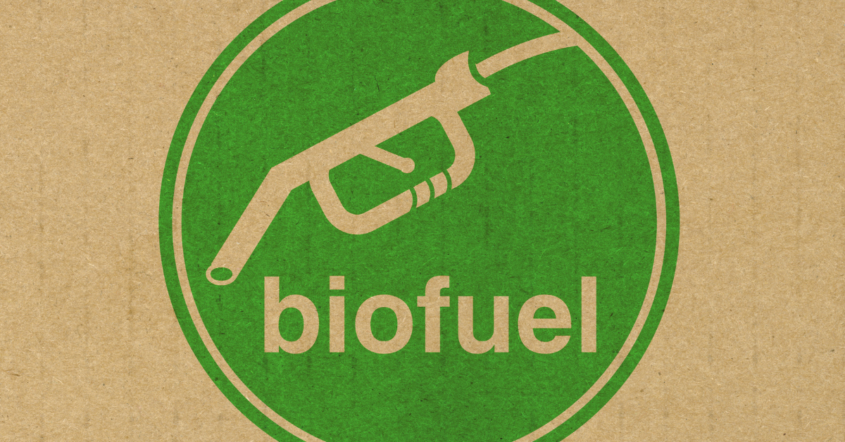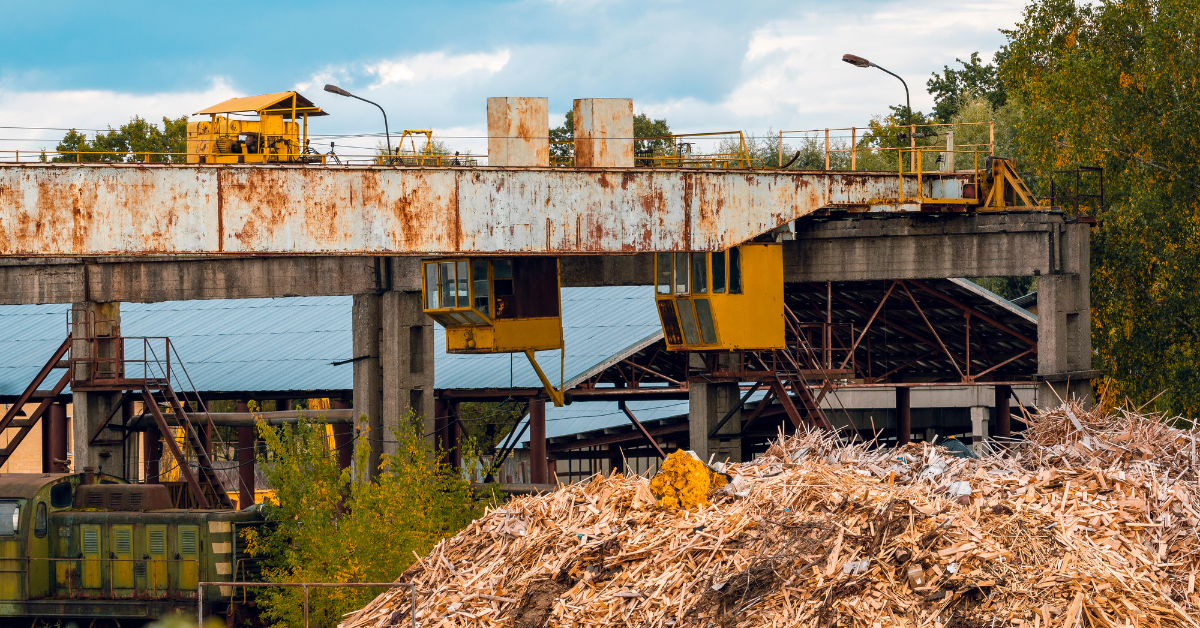Biofuels Production: What are the Advantages and Disadvantages?

What are biofuels? They represent one of humanity’s oldest methods of energy generation, exemplified by activities such as igniting a fire through friction, like rubbing two sticks together.
In contemporary terms, biofuels often pertain to harnessing waste materials to produce power. This approach not only reduces the amount of waste filling up landfills but also holds the promise of generating electricity and fueling vehicles.
While this concept sounds promising, it’s essential to examine the advantages and disadvantages of biofuels. Here, we present seven pros and cons of biofuels that you should be aware of.
Biofuels Production: Advantages and Disadvantages
1. They Can Alleviate the Pressure on Landfills
Imagine if the garbage currently contributing to environmental pollution could serve as a source of energy instead. This transformation would help diminish the strain on landfill capacity and alleviate the collective sense of guilt associated with discarding waste in landfills rather than recycling or proper disposal.

2. They Can Mitigate The Environmental Impact Of Meat Production
Biofuel technology also holds the potential to mitigate the environmental impact of meat production. Presently, the demand for beef, pork, and poultry is responsible for nearly 15% of global greenhouse gas emissions.
However, the oils, fats, and grease extracted from food waste have the potential to be converted into approximately 1.7 billion gallons of biodiesel, presenting a promising opportunity to reduce these emissions.
3. They Come from Renewable Sources
The bottom line is this: unless humans are prepared to wait a few billion years, the moment current oil and gas reserves deplete, they are irreplaceably gone.
In contrast, biofuels are perpetually renewable because they derive from everyday commodities. The earliest instance of biofuel energy is fire, fueled by endlessly renewable materials like sticks and leaves.
Ethanol, one of the earliest biofuels, is produced from grain crops, ensuring its infinite renewability as long as the land continues to yield annual harvests.
Most vehicles can accommodate ethanol blends containing up to 10% ethanol, while flexible-fuel cars can utilize blends containing up to 85% ethanol. Numerous municipalities have integrated these vehicles into their police and rescue operations to curtail emissions.
It is evident that a continuous flow of municipal waste remains. Once the means of efficiently converting this waste into energy are perfected, the prospect of an unlimited fuel supply becomes an enticing possibility.
4. They Produce Cleaner Emissions Than Fossil Fuels
Ethanol offers the advantage of facilitating complete combustion, resulting in reduced carbon emissions and a decreased dependence on fossil fuels.
According to the Environmental Protection Agency’s 2010 analysis, various biofuels have the potential to generate lower life-cycle greenhouse gas emissions compared to gasoline.
Biofuel technology carries the potential to save lives, considering that air pollution currently claims the lives of over 10 million people each year.
5. They Enhance Energy Independence and Foster Job Creation
The potential of biofuel production to enhance energy independence from foreign sources is readily apparent in today’s headlines.
Armed conflicts stemming from competition for limited resources lead to extensive environmental damage and accelerate the depletion of Earth’s finite resources, ultimately diminishing the time humanity has on this planet and making life less pleasant for all.
Moreover, the transition to automated processes in many industries, previously reliant on manual labor, underscores the growing need for quality jobs.
The technology and energy sectors, in particular, offer well-compensated positions with benefits substantial enough for individuals to purchase homes and establish families.
6. They Compete with Land Needed for Food Production
Regrettably, not everyone would experience immediate benefits from the adoption of biofuels. Worldwide hunger continues to be a pressing issue.
Concerns have been raised by experts that the shift to biofuels may consume land that could otherwise be used by farmers to grow food for human consumption.
7. They Entail High Production Costs
Another challenge associated with biofuels is their relatively high production costs. Producing one kilowatt of energy from coal typically costs around $2,000 to $2,300 in plant expenses.
Biofuels significantly raise these costs to a range of $3,500 to $4,000. Nonetheless, there is reason for optimism.
In the near future, it may become possible for individuals to acquire biomass generators for home use. Although current models cost roughly as much as a new car and can produce 20 kilowatts of electricity, society may eventually reach a point where you can dispose of your waste in a specially designed heater to warm your home instead of merely discarding it in a garbage bin.
8. They Could Contribute to Deforestation
A final concern regarding biofuels is their potential to contribute to deforestation. The argument becomes more complex when one considers the competing priorities of conserving forested areas for environmental protection and the potential for farmers to utilize these lands to address hunger or provide essential heat.
It is crucial for humanity to strike a balance between their enthusiasm for biomass technology and the preservation of natural environments.
Psychological studies have highlighted the positive impact of nature on human well-being, emphasizing the need to maintain public wildlands for the benefit of all, rather than just a select few who can afford to venture far from urban areas to connect with nature.

In Conclusion
As we conclude our examination of the pros and cons of biofuel, it’s crucial to acknowledge their significant role in combating human-induced climate change. The shift from traditional fossil fuels to renewable biofuels offers hope in the environmental realm.
Biofuels, deeply rooted in human history, epitomize our ability to harness nature for energy. From primitive fire-making to modern waste-to-energy methods, they showcase our innovative spirit. They hold the potential to reduce landfill waste, lower greenhouse gas emissions, and provide a cleaner energy future.
Yet, let’s remain cautious. Even advanced technology has its challenges. Biofuels raise concerns about competing for arable land needed for food production and the risk of deforestation. We must strike a balance between biomass technology enthusiasm and natural preservation.
Additionally, addressing production costs is crucial. While currently high, we anticipate making biofuels economically competitive, bringing them closer to home use. This vision provides optimism.
Biofuels also represent energy independence and job creation. They lessen dependence on foreign energy sources, reducing conflicts and environmental damage. The shift to automated industries indicates the need for well-compensated jobs in emerging sectors.
Our challenge is to balance biofuels’ merits and drawbacks and address the ethical and environmental dilemmas they pose. This debate mirrors humanity’s relationship with the planet.
Biofuels offer progress and a chance to mitigate climate change. We must make informed choices, advocate for sustainability, and drive innovation for accessible, eco-friendly biofuels.
Biofuels’ journey continues to evolve, highlighting the path toward a cleaner, greener world. Armed with this understanding, let’s face the future with wisdom, determination, and the commitment to create a better world for future generations.



